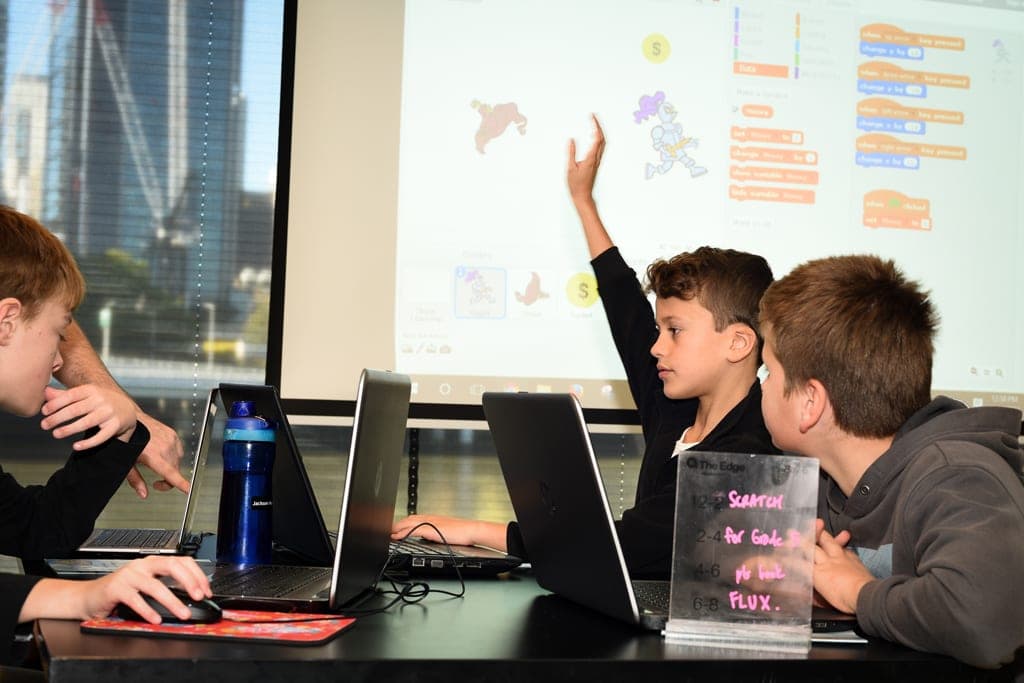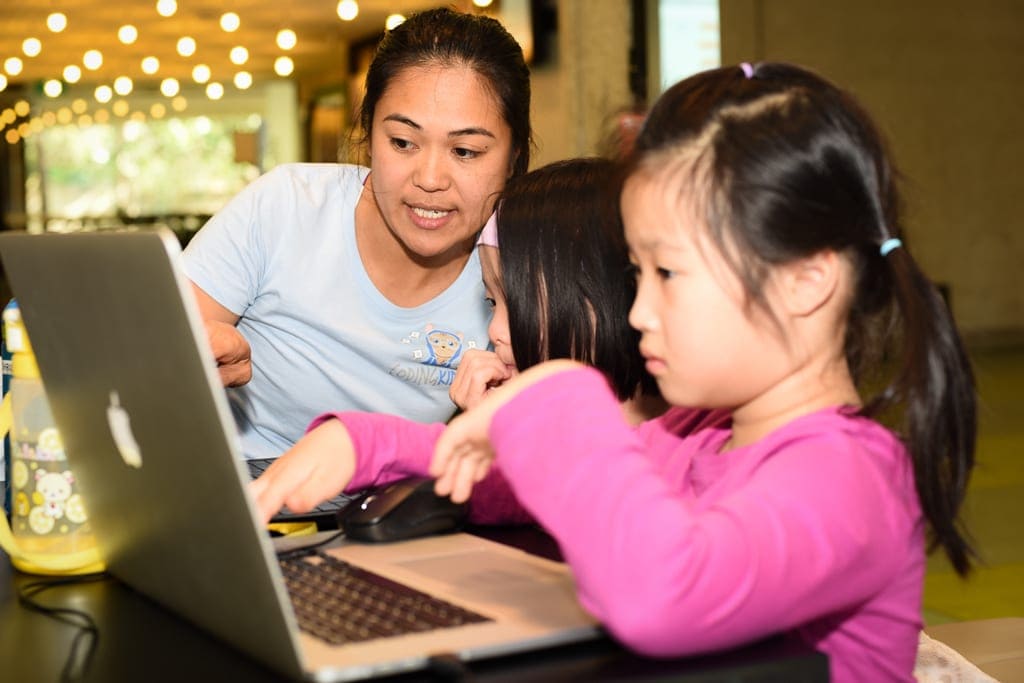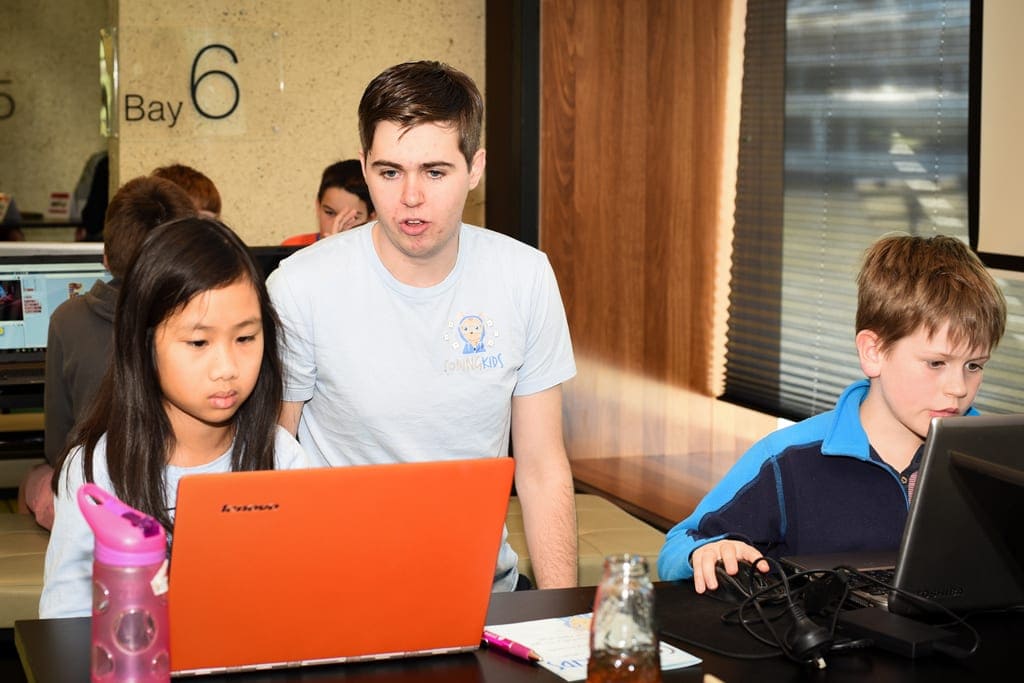The benefits of learning to code is not just about the skill of computer programming. It is all the underlying benefits that come with knowing how to control computers and technology and the mindset it nurtures.
Learning to code helps kids to:
- Have a growth mindset
- Learn how to learn
- Experience authentic learning
- Feel empowered with (not controlled by) technology
- Future-proofed job skills
Growth mindset
Carol Dweck researches “growth mindset” — the idea that we can grow our brain’s capacity to learn and to solve problems. Carol Dweck asks in her popular TED Talk, “Are we raising kids who don’t know how to dream big dreams? Their biggest goal is getting the next A or the next test score?” Believing that we are able to grow beyond our current abilities allows us to actually grow. This belief is what supports our ability to improve and a lack in this belief hinders self improvement.
Learning to learn
Whether you are a professional programmer or a beginner at school, we all learn computer programming by making an informed guess, testing it and observing the results to determine whether the guess was correct or not. Learning to code involves learning a new way of learning through trial and error.
Students who are new to our coding clubs often ask before they have tested their code, “Is this correct?” Our Coding Mentors respond, “I don’t know. Shall we test the code and see?” Students learn from making a hypothesis, testing and observing the results.
Authentic learning
Authentic learning is learning in a real project environment. For example building your own computer game or animation movie is an authentic learning experience. The end product is a computer game or an animation movie. This is different to a project where you research about computational thinking and write a report about the history and current trends in this subject. Authentic learning is more engaging and effective for the learner. Students know that they are building a real product e.g. a computer game, that they can get their family and friends to play. It is possible for them to email a link of their finished product to anyone for them to play and engage with the computer game.
Feel empowered with technology
Everyone should feel empowered with and not controlled by technology. In an ever increasing digital world, it will become more and more common for people to feel controlled by technology e.g. push notifications, instant communication, social media addiction. Digital literacy should focus on technology creation not consumption. Skills based on technology creation gives students the opportunity to feel that they control technology. Technology is man made, so we need to experience that we too can create and control technology. Learning to code empowers students to create and produce their own technology.
Future-proofed job skills
The final benefit of learning to code is learning a future-proofed job skill. Although this is not the benefit I like to promote first it is one that a number of parents are concerned about. With software eating the world and artificial intelligence replacing professional jobs like lawyers, doctors, accountants, psychologists and journalists, digital literacy is the next level of fundamental literacies.
Learning to code is a great skill in and of itself. However, coding also provides a number of valuable, transferable skills: growth mindset, learning to learn, authentic learning, feel empowered with (not controlled by) technology, and future-proofed job skills.
Learning to code these school holidays with Coding Kids
Spend these school holidays learning to code by building your own digital projects. Go along, meet like-minded friends and create, build and invent.
Holiday Code Camps
- Learn to code with Scratch for 7-11 year olds
- Learn to code with Python for 10-15 year olds
- Learn to code Pepper, the friendly humanoid robot for 8-15 year olds
- Learn to code with Python for 10-15 year olds
- MicroMakers, build inventions with Scratch and Makey Makey
- Build your own 2D zombie apocalypse shooting game for 10-15 year olds
- Coding Mentor, Shawn Phua, fluent in Auslan and Signed English is available upon request.
Dates: every school holidays
Venues:
Microsoft Innovation Centre, Brisbane
Pepper Studio, Brisbane
Yeronga State School, Brisbane
Bulimba State School, Brisbane
Maroochy Neighbourhood Centre, Sunshine Coast
Palm Beach Scouts Hall, Gold Coast
Fees: $125 – $500 (depending on length of course)
Bring: Your own laptop.
Enrol online here.
Or invite Coding Kids to run the coding clubs at your school.
About the Author
By Emily de la Pena, Founder of Coding Kids
Coding Kids runs school holiday code camps and after-school coding clubs. Children build their own computer games and animation movies. Through fun and and play children discover computer programming concepts, computational thinking, algorithmic thinking, debugging, logic, problem solving and maths. Contact Emily on hello@codingkids.com.au to bring Coding Kids to your school.



